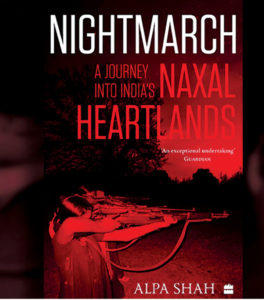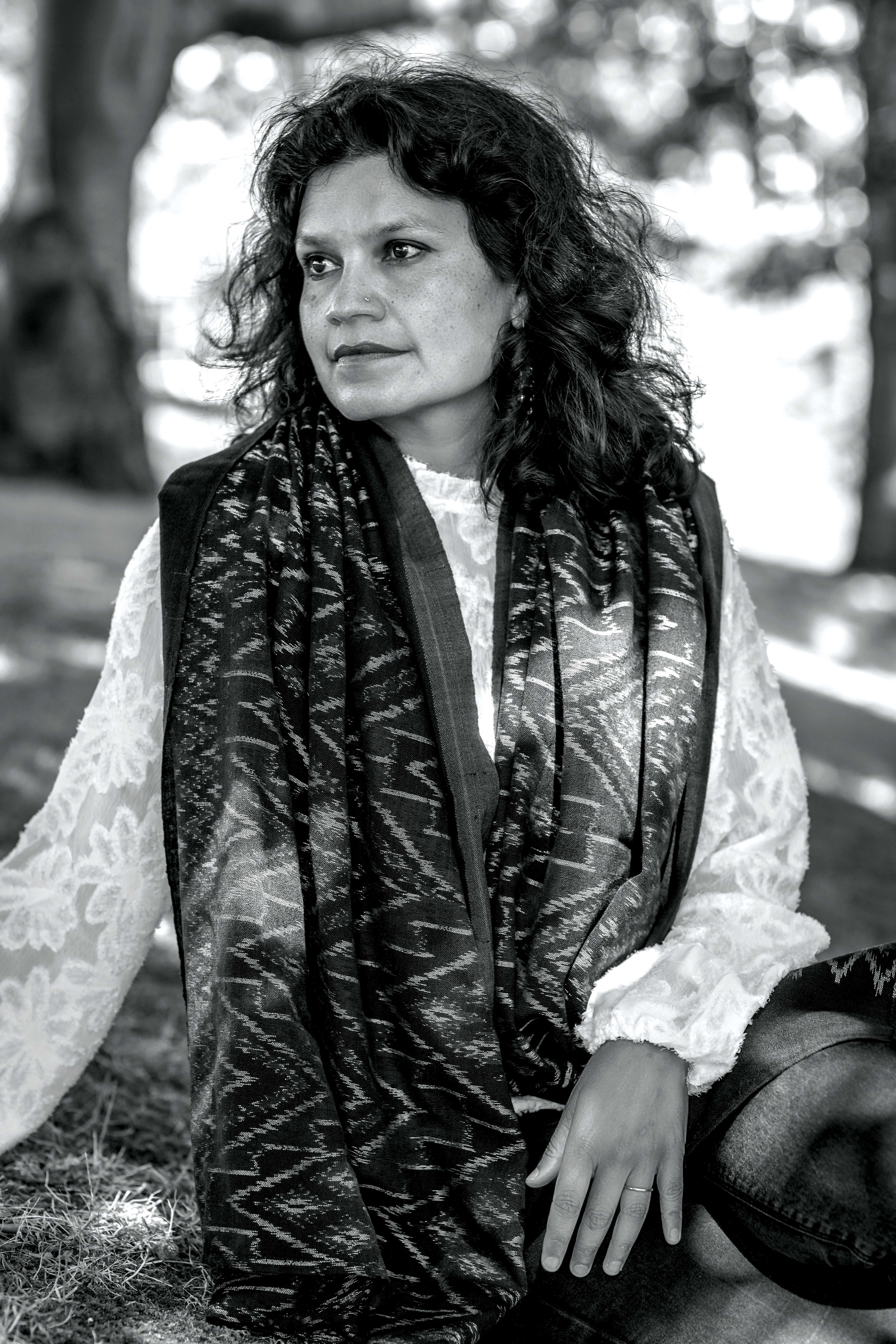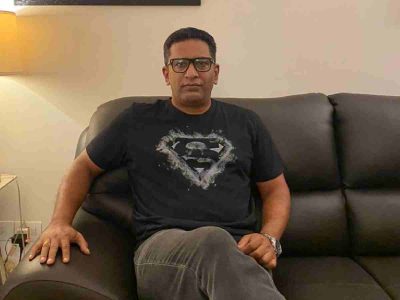Alpa Shah’s ‘Nightmarch’ is an insightful exploration of conflict and its origins, and how the understanding of both eludes politics and policies for tribals in India
Literature in narrative non-fiction is undergoing an academic shift, lending to works in the genre richness of ethnographic research and multi-layered narratives. From Pulitzer-winning author and academic Matthew Desmond to more recently, Alpa Shah, works of narrative non-fiction by academics in recent years have contributed remarkably to our understanding of the most critical challenges facing the world. Embedded research, which often accompanies work in the genre, creates an intimate view of communities caught in the midst of unfolding complexities, offering a rare and empathetic understanding of not just compelling issues but also the people at the crux of it all through masterful storytelling.
Alpa Shah, author of Nightmarch: Among India’s Revolutionary Guerrillas, spent 18 months in the forests of Jharkhand and Bihar between 2008 and 2010, living among the tribals in huts without electricity and water. Shah, who was raised in Nairobi, read Geography at Cambridge and is currently a professor of anthropology in London at the London School of Economics, sought to understand how and why the tribals—mostly belonging to the Scheduled Tribes, often neglected by the local administration and the state and central governments—were picking up arms to create a “different world”.

The book’s lucid prose sensitively straddles the world of Naxals to tell stories of conflict, hierarchies, inequality and inherent contradictions in the movement with compelling takeaways for everyone. Nightmarch is an insightful exploration of conflict and its origins, and how the understanding of both eludes politics and policies for tribals in India. The book has been shortlisted for the 2019 Orwell Prize for Political Writing and the New India Foundation Book Prize. It was also on the longlist for the Tata Literature Live Nonfiction Award. Shah spent four and a half years doing anthropological fieldwork among Adivasis – one stint in 2008 to 2010 but also a longer one earlier – and draws on all of this experience for Nightmarch.
She is also the author of In the Shadows of the State’ and co-author of Ground Down by Growth.
In an email interview, Shah discusses her thoughts on writing non-fiction as an academic and whether she thinks the trend is going to catch on:
Your book has been acclaimed for its superlative craft in political writing. What are the key elements in your writing style that you think makes the book so immersive?
Thank you. I’m not sure I have a style as such. I think most important (to the process) was a feeling, a compulsion if you like, of the need to share widely the knowledge I have been fortunate to attain. What was happening in the guerrilla strongholds had been silenced for the world outside. Meanwhile, a lot was being written on the Naxalites, which was either falling one way into those who radically opposed them, or the other, into those who tried to counter that position. This created polarising views. Adivasis were shown to be joining the rebels because they were forced to, because they were gaining utilitarian benefits, or because the insurgents addressed their grievances. My fieldwork had shown that the reality was more complex and that it was important for the world to understand that because so many lives were at stake. Many of the people I knew – those who lived in the jungles and those in the cities who could have brought light to their stories – were incarcerated if not killed. The responsibility of the uniqueness and significance of the stories I carried with me weighed heavily and I realised that I could not let the unexpected insights that I discovered through them be confined to the ivory towers of the university. I had to touch the hearts of people who read the book – as many as possible – in the way that the people I met, during the course of my research, had touched mine. I had to try to reach as wide an audience as I could, but without simplifying the analysis or dumbing down my scholarship. How to do this was the next question. I think a lot of my inspiration came from George Orwell, for whom the initial motivation for writing was similarly to get a hearing because there were lies to expose, facts to draw attention to, but to also make that process into an aesthetic experience. Writing, then, must be thought of as art.
How different do you find narrative non-fiction from academic writing and in what ways?
Academics these days are mainly trained to write for each other and not the general reader. It wasn’t always like this but over the years, there has been a kind of scholarly enclosure, especially in the West. It is partly to do with how neoliberalism has materialised itself in the university context. Austerity narratives have brought pervasive marketisation and the ethos of business into universities, determining how we monitor ourselves, bringing crude evaluation criterias of promotions rankings and research evaluation frameworks to bear on our writing. A kind of scholarly enclosure has advanced as academics are encouraged to address whatever conversation seems to be in vogue in a particular moment, and this is often the one that others can’t understand, and all of this becomes further validated through the inwardly looking practices we perpetuate of recognition, citation and promotion. Our writing is sapped off its vigour. Indeed, academics have increasingly ceased to be public intellectuals, the spaces of which are claimed mainly by people outside of the academy. So really, today, academics have a lot to learn from writers of narrative non-fiction, in finding ways of communicating the complexity of their scholarship to reach beyond elite audiences. I hope Nightmarch can create greater space for other scholars who want to make the wealth of their scholarship accessible to people outside the academy.
How long did you take to write Nightmarch? What were the key challenges before you as an academic as you set out to write a book focused on narrative non-fiction?
A very long time! The fieldwork for Nightmarch ended in 2010 and the book was published eight years later. It took me all that time to figure out what the significance of the stories I carried were and then what to do with them. I had to rework much that I had learned, the habits I was trained into, the traps of mystification common in academic writing. New concerns filled my imagination. Character, dialogue, journey, cliff hangers, audience and how to show and not always tell. But at the same time, it wasn’t all just about telling a story but also about drawing out the complexities of the analyses, the contradictions and tensions, thinking through the lessons for different kinds of audiences, including the Naxalites themselves.
Do you foresee possible shifts in academic writing so it could be made more approachable for the masses? A number of academics – right from Matthew Desmond to yourself – have now written award-winning books in narrative non-fiction.
Yes, I do.
Change is enabled partly through continuity. Despite the overwhelming insularity of so much of academic writing, there have always been those who bucked the trend, tried to reach beyond to a wider audience. Change is also enabled by the fact that serious conversations about writing itself were kept alive in academia. And then, there are contradictions in the way the pressures from above work that can be utilized as a force for change. Today, top university presses are feeling the financial crunch; books need to sell. Editors are encouraging us to move beyond academic prose in favour of compelling, clear writing. Bringing about change is also helped by the fact that those who have taken the risks to write jargon free books engaging broad publics are being rewarded with prizes.
But also, change is coming from ‘below’. Perhaps, it is the very pressure of decades of professionalism, the knowledge that years of tenure criteria and academic ranking have dumbed potential brilliance into mediocrity in writing, that we feel the need to push back. Perhaps it is because in this era of rising inequality and authoritarianism, we feel Orwell’s sense of political and artistic purpose in writing more than ever to keep alive the spaces of democracy, hope of justice, and demands for a more equal world. I think a collective will, across generations, will be a force for overall change for giving more room for writing that matters, and matters beyond the academy.
Nightmarch was not just a book of engaging narratives, it was also the result of years of research on the field. What is your advice to researchers and academics aspiring to write narrative non-fiction in future?
I think there are no blueprints, no models, no prefigured ideals. But one question we should all ask ourselves, is the simple one, ‘Why Write?’
What is at stake? Who is our audience? What is our intent? What makes us tear up our pages and rebuild? What is our political purpose? Our historical impulse? Are we aware of it? Why, if at all, does it matter that we are writing as scholars and researchers? What are the consequences?
Another important issue to bear in mind is to first and foremost be committed to good research itself. Don’t go about the research just in order to write a good story, or with preconceived ideas of what you may find. Always challenge your own ideas, seek hidden truths and unexpected insights. Never forget to be critical, including, of yourself.
In terms of writing, I think it is important to be committed to the insights you have gained from the people you have been lucky to study. There’s also something very special about doing deep immersive field research in communities, which allow researchers to draw upon the affective resonances that are born of intimacy with the people we meet to make our writing more engaging and effective. Keeping the lives of those we have studied close to us at all times, including when we are back at our desks, will help us make our analysis in writing more compelling.





